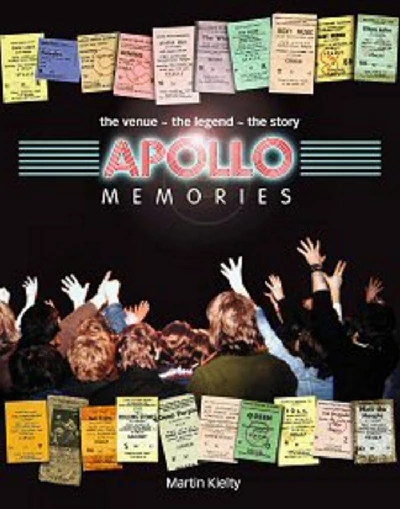Miscellaneous
-
Apollo Memories
published: 7 /
1 /
2006

The Glasgow Apollo was a legendary 70's and 80's rock venue, thought of which makes many Scots over 40 become weak with nostalgia. John Clarkson finds Martin Kielty's new book about the long closed theatre essential, compelling reading
Article
There are very few venues which could be described as legendary. Yet, like the old London Marquee, the Winterland in San Francisco and CGBG’s in New York, both in terms of ambience and the quality of the bands that graced it, the Glasgow Apollo is worthy of such an accolade.
With its notorious shaking balcony, sadistically violent bouncers, and decaying seating and furnishings, the “Purple Palace”( as it was known locally because of its dyed purple carpet in its foyer) had atmosphere in abundance. Acts such as the Rolling Stones, the Clash, Thin Lizzy, the Stranglers, AC/DC, Motorhead and Roxy Music all passed through it doors, and even now over 20 years on since its demise thought of the Apollo can still make many Glaswegians and Scots over 40 become moist-eyed with nostalgia.
Sensational Alex Harvey Band manager and biographer Martin Kielty’s second book ‘Apollo Memories’ has been written with the collaboration of the website of the same name, which has been picking up strong hits since it first went on-line in 2002.
It tells the story of the Apollo’s relatively short 12 year history-its emergence in 1973 out of the remnants of Green’s Playhouse, which built in 1927 with over 4000 seats had at one time been Europe’s biggest cinema ; its glory years in the mid and late 70’s, and its gradual disintegration and eventual closure in 1985 as developers battled over it and a lack of liquor license and its vast size lead to exorbitant bills.
Every book of this kind needs a few good rock star anecdotes, and ‘Apollo Memories’ is packed full of them. All acts that sold out the Apollo were given a plastic statuette quickly christened an “Apollo Oscar” as a token of appreciation. On opening night in September 1973 Johnny Cash was handed one such Oscar. He told the manager who had given him it that he would always treasure it, only for it to be found in the bin in his hotel room hours later. In October 1975 an angry Keith Moon, in a tantrum with the rest of the Who, trashed his dressing room. The dressing room was already in need of refurbishment, so the Apollo’s management avoided sending in the bouncers to stop him, knowing that it was in the band’s contract to foot the bill with an extra ten per cent on top for any damages. In March 1976 Leonard Cohen had the misfortune to play the Apollo on one of those rare, wonderful nights in which Scotland has beaten England at home at football. “I don’t know” he grumpily chided as one of the quiet passages of his set was drowned out yet again by ‘Flower of Scotland’. “One minute we’re at a concert, the next we’re a football game…”
Yet, good as these and other tales of rock celebrities are, where Kielty has really excelled himself is in collecting together the thoughts and stories, some of which originally appeared on the Apollo Memories website, of the punters who regularly came to the Apollo and the people who worked there. There is the bouncer who met his wife after he could not stop her from jumping up and down on her seat at a Slade concert ; the ice cream girl who found herself covered in gobs and had her merchandise stolen at an early Damned concert supporting T. Rex ; the fans who having entered the venue would throw matchboxes out of the toilet windows with their tickets in so that their friends could also get in ; those who fell foul of and were beaten up by the bouncers, and at the book’s conclusion a wonderful story about two drunken fans who broke in as the Apollo was in the process of being demolished in the late 80’s for one last look and helped themselves to two of the seats which they have kept ever since as souvenirs.
If the book has a flaw it is in Kielty’s choice of photos. There is a lot of hard and prog rock bands such as Rush, Van Halen, the Scorpions, AC/DC, Yes, Iron Maiden and SAHB, but few of the punk groups such as the Rezillos, the Boomtown Rats, the Jam, the Stranglers and Stiff Little Fingers, or other acts such as the Osmonds and the Bay City Rollers, all of whom also played memorable concerts there and contributed to making the Apollo such a vital experience. This though is only a very small fault in what otherwise is a well-researched, warm and vibrantly entertaining book.
‘Apollo Memories’ makes essential, compelling reading not just for those who ever attended shows at the Glasgow Apollo, but also for anybody, old or young, who has an interest in rock history.